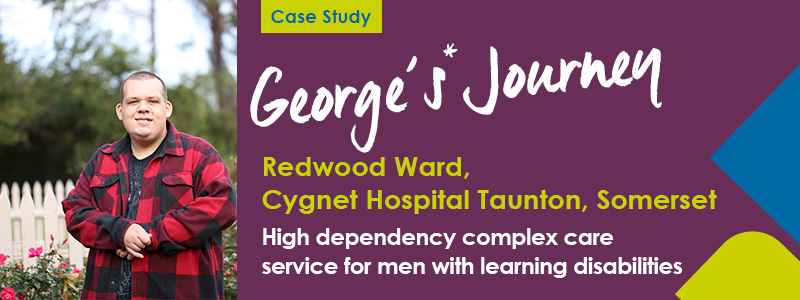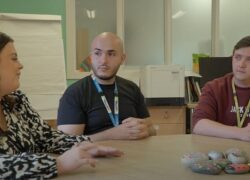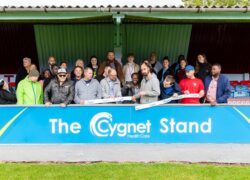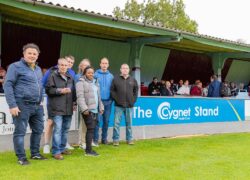
George’s history
George has multiple diagnoses including Autism Spectrum Disorder (ASD), Mild Learning Disability and Post-Traumatic Stress Disorder (PTSD). He experienced symptoms related to PTSD including; trouble sleeping, suicidal thoughts and psychotic-like symptoms. He also struggled with attachment difficulties and separation anxiety from others such as family, or certain members of staff. George was referred to Redwood Ward, a high-dependency complex care service at Cygnet Hospital Taunton from a low secure service, with the intention for George to move on to a less restrictive environment to continue his recovery journey.
Preparing for admission
To give George the best chance at a successful transition, the team agreed on a staged approach in collaboration with the low secure service. As part of the 6 week plan, staff worked closely with George, his family and his key support staff in order to get to know him and to prepare both George and the team for admission. After learning of his favourite football team and his sensory needs, the staff decorated his bedroom using these themes to make him feel welcome on arrival.
Different members of the multi-disciplinary team (MDT) visited him and engaged him in video calls, ensuring a familiar member of staff was always present when
introducing a new one. They shared a booklet with George about Redwood Ward to help him visualise where he would be moving to and reduce anxiety, they also shared photos of staff and the local area. This helped to build rapport and comfort between George and the team.
A provisory Positive Behaviour Support (PBS) Plan based on referral information and advice from those supporting George was completed before admission. This aimed to ensure staff were confident in using proactive strategies tailored to George’s needs.
George’s care
On admission George initially displayed some aggression towards staff and was self-harming, however, due to the preparation work completed, staff were able to verbally de-escalate most incidents. He spent a lot of time in his bedroom and didn’t utilise any leave.
Medication adjustments were made by the clinicians in line with STOMP (Stopping over medication of people with a learning disability, autism or both) and ‘as needed’ medication was used sparingly after using non-pharmacological methods. The team used the PBS plan and analysis of factors before, during and after incidents to help identify triggers, this was a robust process for managing any difficult periods.
After getting to know George further, staff could plan more activities based on his interests and offered a sensory integration ‘diet’ with guidance from the occupational therapist (OT). Staff devised a football themed reward chart, using stars as a reward for positive behaviour. In time he would begin to actively engage with not only the OT sessions but all of the MDT. This allowed him to begin accessing the community and utilising his leave to do the things that he enjoyed.
The team recognised that change, particularly around new staff, was a trigger for George, and so bespoke communication methods informed by the Speech and Language therapists were key in preparing George for changes in his routine. Challenging behaviours displayed by him continued to reduce as his care plans shifted to meet his needs.
In the 2 months following admission, aggressive behaviours and incidents of self-harm reduced significantly. George was overall feeling less anxious and had built a positive rapport with the team.
George today
Staff continue to work with George to develop skills which will further his independence, including working towards using public transportation and visiting the shops without staff.
George is enjoying exploring the community during his leave, he often likes to explore by walking along the canal paths and having a coffee in town. He recently celebrated his birthday at a nearby bowling centre.
George has a good relationship with the team at Cygnet Hospital Taunton who support and encourage him to spend time with his family. Staff will continue to guide him through his rehabilitation pathway with the view to achieving independence in all aspects of life.
*Name has been changed to protect his identity




